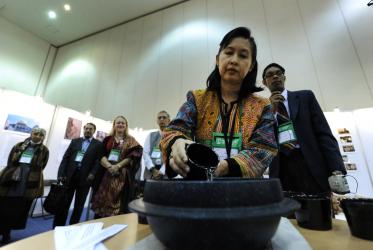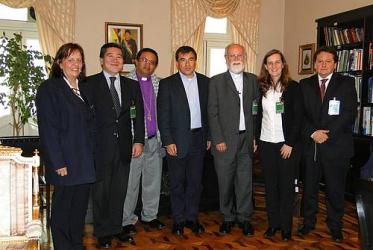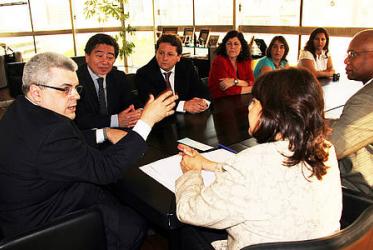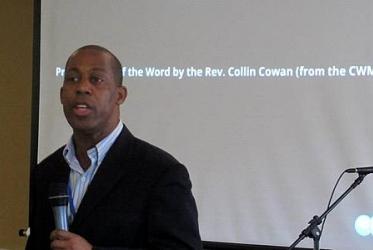Displaying 41 - 60 of 65
24 April 2017
Youth engagement fundamental to HIV response
18 April 2017
Grand Imam calls for collaboration against violence and poverty
06 October 2016
Tveit offers input at religion and development meeting
03 October 2016
Religious leaders highlight significance of water at WCC assembly
04 November 2013
Statement on global economy delivered to Bolivia
15 January 2013
WCC delegation in Doha advocates for climate justice
05 December 2012









